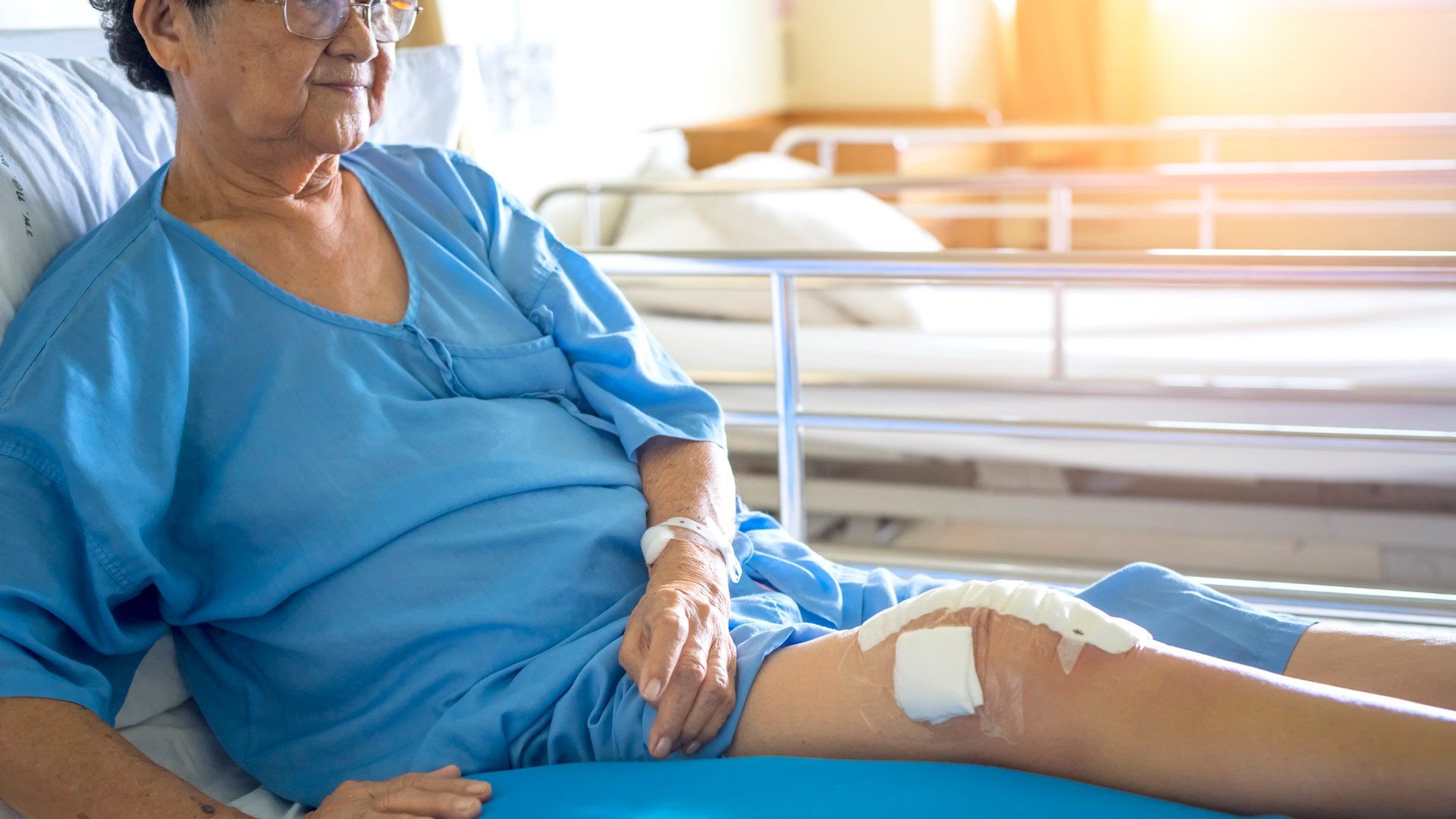Joint Replacement Recovery With At-Home Help
Admin • January 24, 2020

Primary total joint replacement surgery of the hip and knees is one of the most popular
elective surgeries in America, and this trend is expected to continue as the population ages. Revision procedures, which are more complicated and take longer to heal, will rise as well.
As more and more people need a primary or revision total knee or hip joint replacement procedure, more people will also likely need assistance after surgery. For some, that may mean staying at a rehabilitation center, which many are reluctant to do.
The good news is studies
show people who immediately return home after the procedure fared just as well or better as those who stayed in a rehabilitation center. Home health care services can provide most, if not all, the help you need during your knee or hip joint replacement recuperation period. Here are a few essential services to arrange prior to your procedure.
Skilled Nursing
After hip or knee joint replacement surgery, you can expect your hospital stay to only last about 1-4 days. If you are having an outpatient joint replacement procedure, you will go home the same day!
As long as your pain is under control and you are able to get in and out of bed, use a walker or other assistive device, use the toilet, eat, maneuver a few steps up and down the stairs, and understand your postoperative instructions, your physician will discharge you.
While the hospital and your insurance company may decide you are ready to go home, you may not feel anywhere near prepared to leave so soon, especially if you live alone. Also, people sensitive to anesthesia often take longer to feel normal again and may want additional help.
Registered nurses (RN) and licensed practical nurses (LPN) can provide skilled care, bridging the gap from hospital to home until you do feel more comfortable. In addition to monitoring your vital signs, nurses can perform wound care, regulate your medication, and educate family members on how to best care for you.
Skilled nurses can also communicate any complications to your doctor. For example, if your pain is not getting better or they suspect your wound may be becoming infected, they can alert your physician to a potential problem before it escalates.
Certified Nursing Assistants and Home Health Aides
Naturally, it takes a while for most knee or hip joint replacement recipients to feel steady on their feet again. A certified nursing assistant (CNA) or home health aide is good to have around in your early days of recovery to assist you with routine self-care activities.
CNAs and home health aides will support your daily hygiene needs such as bathing and grooming, using the toilet, and dressing. They can also assist with meal preparation and light housekeeping, such as doing the dishes after dinner.
Homemakers
It takes a bit to heal from surgery, and a total knee or hip joint replacement is no exception. It will probably be some time before you are ready to scrub your kitchen floor, carry a load of clothes up and down the stairs, or drive to the grocery store to pick some things up for dinner.
Employing a homemaker through a home health care service will ensure your home stays tidy, the laundry gets done, the garbage gets taken out, and you have the things you need while you recover. As you gradually feel better, you can begin assisting with the chores until you are able to take them over on your own.
Physical Therapy
The success of your total or revision hip or knee replacement surgery largely depends on doing your prescribed exercises. In-home physical therapy visits will ensure you are doing your exercises as you are supposed to and making satisfactory progress.
If you are having a hip or knee joint replacement procedure or any other type of surgery and will need help after you are discharged, contact Redi-Nurse
today to discuss your home health care needs. Setting up services before your procedure will provide tremendous peace of mind and allow you to focus on getting well.
Many families turn to private duty nurses to help shoulder the responsibilities and care for their loved ones. Read this blog to learn more.
A natural disaster can happen to anyone at any time. Preparedness is vital, so to help you create a workable plan, use these tips for success.
Are you the caretaker for an elderly loved one? If so, learn about a few of the benefits you and your loved one can enjoy with a visiting nurse.
Your loved one can benefit from different forms of therapy. In-home nursing services can bring the therapy to your loved ones. Look at three common options.
Read on to discover some reasons why in-home nursing services might be the best choice for people needing medical and personal help.
If you suspect that your loved one has dementia, you should learn more about the condition. Read this blog for a quick overview of dementia.
Proper exercise is key to a healthy lifestyle, particularly as people grow older. Learn about different exercises that are especially great for seniors.
The care of a patient with dementia presents many challenges. Discover some ways to cope with the difficulties of caring for a loved one with dementia.
Do you care for a senior who is frailer? Discover four smart steps you can take to reduce fall risks for the senior who is physically frail in your life.





